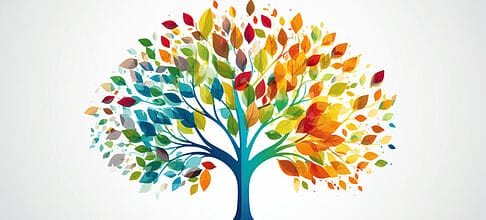Enhancing Decision-Making Skills: Practical Tips
Want to make better decisions? Your decision-making skills can significantly impact your success. This article will guide you on how to improve them.
We’ll explore setting clear objectives, gathering relevant info, evaluating alternatives, implementing your choice, and developing emotional intelligence.
Ready to level up your decision-making game? Let’s dive in!
Table of Contents
The Importance of Clear Objectives

You’ll find that establishing clear objectives is crucial in honing your decision-making skills. Clear goals guide your thought process and help you focus on what’s important. They provide a roadmap, directing you toward the right path and avoiding unnecessary detours.
With clear objectives, you can weigh your options more effectively and make decisions that align with your goals.
Imagine trying to navigate through a maze without a clear sense of direction. It’s easy to get lost, isn’t it? But with a clear goal, you can quickly identify the correct paths and avoid wrong turns. That’s how objectives work. They improve your decision-making skills by providing clarity, direction, and focus.
So, always set clear objectives. They’re your guiding light in the decision-making process.
Gathering Relevant Information
To make more informed choices, collecting pertinent data and thoroughly researching your options is crucial. This involves seeking resources, data, and expert opinions to understand the situation. You can’t make sound decisions if you’re working in the dark, and that’s where information gathering comes in.
Start by identifying what you need to know. What are the key factors that will affect your decision? From there, seek out credible sources of information. This could be data analysis, reports, or advice from experts in the field. Remember, the quality of your decision heavily depends on the quality of your information. So, be thorough and consider all perspectives.
It’s okay to take your time in this stage; it’s better to be slow and accurate than fast and wrong.
Evaluating Alternatives and Options

Once you’ve gathered all the necessary information, it’s time to weigh your alternatives and options. Don’t rush. Take your time to evaluate each potential solution or course of action carefully. Look at the pros and cons and consider the possible outcomes.
Remember, no option will be perfect. You’re looking for the best possible solution, given your circumstances. It’s also crucial to remain objective during this process. Don’t let personal biases or emotions cloud your judgment.
Use tools like decision matrices, SWOT analysis, or cost-benefit analysis to help you systematically evaluate your options. Seek advice from others if you’re unsure. With careful evaluation, you’ll improve your decision-making skills and increase your chances of making the right choice.
Implementing and Assessing Your Choice
After you’ve evaluated all your options, it’s time to put your choice into action and assess its effectiveness. The implementation phase is crucial, as you must commit and follow through with your decision. It’s okay to feel uncertain. Not every choice will lead to immediate success, but it’s a stepping stone to improving your decision-making skills.
After implementing your decision, take time to reflect. Did it work out as you anticipated? If not, where did you go wrong? Learn from these experiences. The assessment phase isn’t about beating yourself up over mistakes. It’s about understanding the consequences of your choices and using that knowledge to make better decisions in the future.
Remember, improving decision-making skills is a continuous process, not a one-time event.
Developing Emotional Intelligence and Intuition

Boosting your emotional intelligence and honing your intuition can play a vital role in your ability to make informed choices. Emotional intelligence helps you understand your emotions and those of others, allowing you to predict reactions and make decisions accordingly. By developing your emotional intelligence, you can make choices that are not only logical but also empathetic.
Similarly, intuition is an essential aspect of decision-making. It’s like an inner compass guiding you when logic isn’t enough. Strengthening your intuition involves trusting your gut feelings and embracing uncertainty. It’s about listening to that inner voice that often knows what’s best for you.
So, don’t shy away from your emotions and instincts. They’re powerful tools for improving your decision-making skills.
Frequently Asked Questions
How can I make an informed decision?
To make an informed decision, you must gather relevant information, consider different perspectives, evaluate the potential outcomes, and weigh the pros and cons. It is essential to take the time to collect and analyze the necessary information before making a decision.
How can I avoid making impulsive decisions?
To avoid making impulsive decisions, it is helpful to practice self-awareness, take the time to gather and analyze information, consider the potential consequences, and consult with others when necessary. Developing patience and self-control can also contribute to avoiding impulsive decision-making.
Are there any courses or resources available to improve decision-making skills?
Various methods, workshops, and online resources are available to improve decision-making skills. These resources focus on critical thinking, problem-solving, and decision-making techniques. It can be beneficial to explore these resources to gain knowledge and develop practical skills to make better decisions
How can I speed up my decision-making without compromising quality?
To speed up decision-making without compromising quality, it is essential to develop strong analytical and problem-solving skills, practice efficient information-gathering and evaluation techniques, and prioritize crucial factors. Additionally, delegating or assigning decision-making authority to qualified individuals can help streamline the process and save time.
What are decision-making skills?
Decision-making skills refer to assessing a situation, gathering information, considering the pros and cons, and choosing the desired outcome.
How can I improve my decision-making skills?
To improve your decision-making skills, you can start by gathering as much information as possible about the situation, considering the possible outcomes, and weighing the pros and cons before deciding.
What is the decision-making process?
The decision-making process involves several steps, such as identifying the problem, gathering information, considering alternatives, evaluating the options, making a choice, and taking action.
What are the benefits of effective decision-making?
Effective decision-making can lead to better outcomes, increased productivity, improved problem-solving skills, and overall success in both personal and professional life.
How can I make better decisions?
To make better decisions, it is important to gather relevant information, consider the potential consequences, seek input from others, weigh the pros and cons, and choose based on logical reasoning.
Conclusion
You’ve got this! Improving decision making isn’t rocket science. It’s about setting clear objectives, gathering relevant info, evaluating options, and assessing the outcome.
Don’t forget to nurture your emotional intelligence and intuition, they’re your allies. Keep practicing patience; soon, you’ll see your decision-making skills sharpen.
Remember, every decision is a stepping stone towards becoming a more confident and effective decision-maker.













